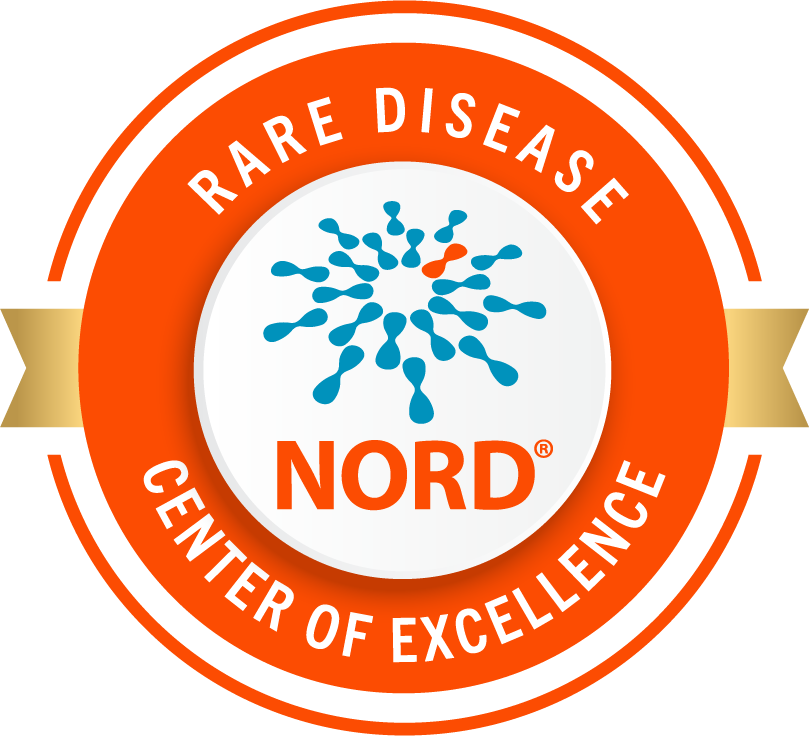The Rare Disease Therapeutics Program was created in 2023 with the goal of creating a destination program for the evaluation and initiation of emerging therapies for patients with rare genetic diseases, providing care coordination for enrolled patients, and developing clinical research questions revolving around emerging therapeutics.

A NORD Center of Excellence: Reimagining the Future of Rare Disease Care and Research
At the University of Michigan, we believe every child with a rare disease deserves the best possible care and support. Our forward-thinking and dedicated division members are proud to be a NORD Rare Disease Center of Excellence institution. This prestigious title sets us apart as the only institution in Michigan, joining the ranks of 40 other academic medical centers across the United States.
Together, NORD’s Rare Disease Centers of Excellence care for thousands of rare disease patients and are at the cutting edge of some of the biggest medical and scientific breakthroughs.
As a member of this collaborative network, we are uniquely positioned to diagnose, treat, and conduct cutting-edge research on rare diseases. It is our hope that through this network we can shorten time to diagnosis, improve quality and access to care and accelerate research projects to develop new treatments and more clinical trials. Our dedicated team is committed to working with eligible parents to ensure they have access to the latest treatments and therapies. Together, we strive to make a meaningful difference in the lives of those affected by rare diseases.
The NORD community includes patients, family members, clinicians, and researchers united by a single purpose -- solve the greatest challenges and unmet needs in rare disease patient care, treatment, and research. To learn more about the NORD Center of Excellence destination, visit their website.
New Therapies:
- Vosoritide for achondroplasia
- Trofinetide for Rett syndrome
Clinical trials:
Philanthropy:
Farrehi Family Foundation Research Fund
Peter and Janice Farrehi along with the Farrehi Family Foundation have generously supported the Genetics Division with a $25,000 gift to support research related to the KDMSC gene and its mutations. Their gift will support the continued infrastructure within Michigan Medicine for continuing a prospective clinical registry of patients afflicted with gene mutations that may result in similar neurodevelopmental disorders. This gift will help to cultivate partnerships between clinical scholars and clinicians interested in creating a nationally recognized NORD center of excellence for chromatin disorders.
To learn more about philanthropy at Michigan, or to share a gift, visit the Leaders & Best website.
In the News
A rare genetic condition with an even rarer treatment

Four-year-old Payton Patterson is much like other children her age – she loves playing dress up, spending time with her parents and two older siblings and watching Paw Patrol. However, within Payton’s DNA lies a rare genetic disease called CLN2, a type of Batten disease, which is a childhood neurogenerative condition that occurs in around 6 in every 100,000 births. Learn more about Payton's story and how the pediatrics genetics team worked together to provide a diagnosis and discuss treatment options >>



